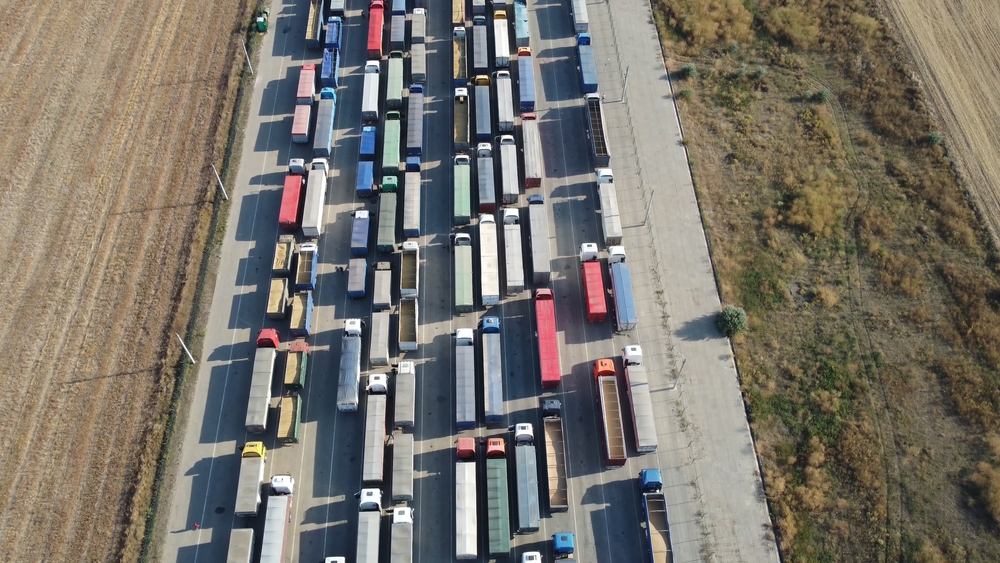
The manufacturing and engineering industries are some of the fastest-changing in the global economy. With challenges ranging from automation and technical modernisation to more cultural changes such as inclusivity and climate awareness, it’s important to acknowledge and account for future industry changes and understand how these challenges can be turned into advantages. In this blog, I break down some of the challenges faced by engineering and manufacturing businesses.
1. Supply Chain Disruption
With 90% of businesses suffering supply chain disruption in the past two years and industry inventories currently at their lowest for decades, it’s clear that this is one of the largest challenges faced by manufacturing and engineering businesses.

The reasons for this are myriad and include readjusting to a post-Covid world, blocked shipping lanes, a scarcity of containers, as well as material and component shortages. When these are combined with the significant rise in prices precipitated by military conflict, we can begin to understand the root cause of the problem. So, how do we resolve the problem? The broad consensus here revolves around three principles:
Flexibility
Keeping in touch with your suppliers to stay ahead of the game, as well as implementing up-to-date data analytics, will allow you to anticipate and adapt to supply chain issues.
Efficiency
Ensuring modern, efficient machinery is being used will contribute greatly to reducing wastage which, in turn, reduces strain on supply chains. Businesses might also consider fully integrating their supply chains to minimise transactional costs and increase revenue.
On-Shoring
By relocating suppliers closer to home, businesses can experience benefits such as a reduction in transport costs, lower buffer stock and emergency order costs and minimising the impact of disruptions such as bad weather, closed ports or language barriers often resulting from an international supply chain.
2. Smaller Export Market
Since the end of the Brexit transition period in January 2021, exports from the UK to the EU have decreased by 18%, and there is little evidence to suggest that non-EU markets increased their imports of British goods to substitute for the downturn.
A post-Brexit survey showed that half of all UK exporters are finding it harder to export to the EU, resulting in export markets shrinking and a sharp drop in the number of effective trade relationships between the UK and the EU.
For UK exporters, the supply chain issues mentioned above have another dimension as a result of the end of the free movement of goods and labour. With a Make UK study showing that 74% of British companies have experienced recent delays and 35% saying that this has resulted in a loss of revenue, the reduction of the UK’s export market since 2021 is still one of the major challenges to overcome for manufacturing and engineering businesses.
3. Skilled Labour Shortages
Partially as a result of the two reasons mentioned above, business costs have increased. This has numerous repercussions across many industries, and one of the most prevalent challenges faced by manufacturing and engineering businesses is a shortage of skilled labour.
With Brexit and Covid19 reducing the talent pool and creating new hiring barriers, employers are struggling to recruit sufficient numbers of skilled employees. This has resulted in 1.3 million vacancies across the engineering and manufacturing industries, with Dr Graham Herries suggesting that employers need to recruit more apprentices and retrain existing staff.
In addition, when surveyed in February 2022, 84% of workers who had to work from home because of the pandemic said they planned to continue a hybrid work model in the future. With only 53% of manufacturing and engineering sector workers having experience in remote working, this could create further barriers to recruitment and ensuring that skilled staff are on-site when needed.
While rising salaries are helping, an increase in remuneration costs could be an expenditure many smaller businesses simply cannot afford.
4. Lack of Industry Diversity
A potential solution to skilled labour shortages might be to increase inclusivity and diversity within the manufacturing and engineering sectors. Black and minority ethnic (BME) engineers make up just 9% of the UK’s workforce, despite accounting for 29.9% of engineering graduates, while in 2022, only 14.5% of engineers were women.
In comparison, Norway’s engineering sector is 50% female, among the highest representation globally. The impact of this is visible when comparing manufacturing output, where Norway added 89% more value to its manufacturing sector than the UK did in 2022. This shows that under-representation is a challenge to overcome for UK manufacturing and engineering businesses, and embracing a diverse workforce is a necessity if the industry is to grow.

In order to combat this discrepancy, the BEIS (Department for Business, Energy and Industrial Strategy) has committed to agree on an action plan with the UKRI (United Kingdom Research and Innovation) and other delivery bodies to raise awareness amongst female, BME and other under-represented groups, and to base 1,350 roles outside of London by 2025 in order to build a manufacturing and engineering workforce in different socio-economic backgrounds.
5. Movement Towards Net Zero
The built environment contributes more than 40% of national carbon emissions, resulting from a combination of buildings and infrastructure as well as surface transport, making slowing climate change and progressing towards Net Zero a significant challenge faced by manufacturing and engineering businesses.
Although emissions have decreased by around 30%, this is largely a result of decarbonising electricity production rather than more efficient buildings. And, while new builds are drastically more energy efficient, Government programmes aimed at improving the efficiency of existing buildings have stalled.
An £87 million ECITB (Engineering Construction Industry Training Board) pledge is reducing a labour shortage in green engineering skills, and independent initiatives from groups like Actuate UK and Energy Systems Catapult are aiming to fill the technology gap, helping the engineering and manufacturing industries build a more modern, sustainable future.

Need Help Combatting the Challenges Facing Your Business?
With over 30 years of marketing, strategy, sales and business development experience, often specialising in sectors such as Engineering, Oil & Gas, Chemicals and Manufacturing, I can help you develop and adapt your business to manage any challenges you might encounter.
